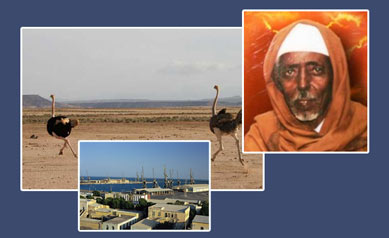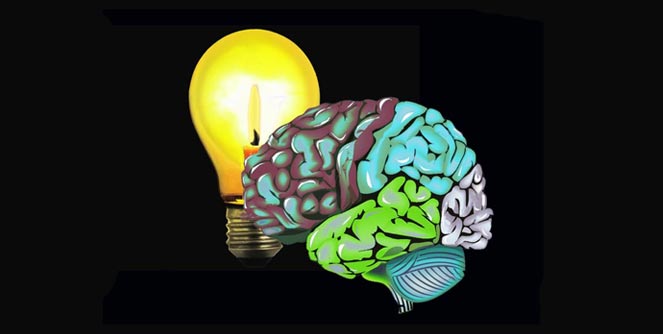Critiques And The Politics of Truth: “EASE” Demonstrated Afar’s Grievances

“No theory can develop without encountering a wall, and practice is necessary for piercing this wall” [Gilles Deleuze]
Introduction
On December 26 to 27, 2015, the “Global Eritrean Advocacy Network” (GEAN) had convened a conference in Cypress California [Gedab News, Dec. 30, 2015]. In the conference Ahmed Youssouf Mohamed, the chairman of the “Eritrean Afar State in Exile” (EASE), has presented a paper that demonstrate the marginalization of the Eritrean Afar social group by the current state of Eritrea. Interestingly enough, his argument was punctuated on the concept of “self-determination for self-rule,” an idea – I have been espoused for longtime, for purposes of equitable power sharing and maintaining the “equilibrium of interest” within our social groups – which are the building blocks of Eritrean identity.
But, before I proceed for the appraisal of Ahmed’s presentation, I will say few things about the title of this article “critiques and the politics of truth” along with the concept of “political tutelage” to relate it in the Eritrean political landscape; and subsequently, how the argument of “EASE” indirectly tackled the programmed Eritrean mind by the current government in the marginalization process of our minorities. In other words, I will try to investigate the purported truths of Eritrean politics of our era.
The Yoke Of Tutelage And The Power of Enlightenment
In 1784, Emmanuel Kent in his foundation of metaphysics of moral, described enlightenment as “man’s release from self-incurred tutelage”. According Kent “tutelage is man’s inability to make use of his understanding without directions from others”. He further alluded, that self-incurred tutelage is not in lack of reasons but it is in lack of courage and resolution – to use their own reasons without direction from others. And the reasons to live lifelong under the guardian and direction of government are “laziness and cowardice” which Kent referred it as the yoke of tutelage [1]
Enlightenment is the antithesis of tutelage, and its motto is to have a courage to use your own reason, conscience, and avoid your placid nature that put you under superintendent of the powerful government that dictate the mind of its subjects. Enlightenment does not require restriction rather it requires freedom to argue with the public use of one’s reason, that makes a person a scholar and dig to the unknown knowledge to bring to the surface and establish it as new reality.
In this age of enlightenment, the public can slowly remove the yoke of the guardians from their mind that ultimately dismantle the personal despotism or tyrannical oppression that become the obstacle to “a freedom” to make use their own reason in matters of conscience.
Unfortunately, the Eritrean people became “programmable” giving the oppressive regime an open door to program them, through mass propaganda of collective brainwashing, political myth making, and conspiracy theory that cast fears in their minds. The political discourse of the opposition is therefore, to unearth the power of the ruling class, as defined by its interest, and uplifting the consciousness of the mass, to show them the qualitative difference in their revolutionary investment (dismantling the oppressive system) from that of the ruling class and their sympathizers that are so often misguided with the reform orientation in their forward looking.
Equally though, when freedom is granted, for sure enlightenment will follow, and consequently the removal of the yoke of tutelage of the oppressive regime from the shoulders of the public at large. In this case, “our ability to resist control (of our mind) or our submission to it (to the power of tutelage), has to be assessed at the level of our very move [Deleuze 1995:176].
Critiques And The Politics of Truth
Gilles Deleuze once posed a question as follows: “why do we desire who oppresses us?” [2] venturing to study “the micro-politics of desire” in searching an investment and an instrument for the combat to the psychology of tutelage in the sphere of consciousness. Deleuze’s intellectual endeavor mimicked me to ask as to why some of our intellectuals have still to live under the tutelage of the tyrant, even when they are far distant from the harassment of the regime and none of their interest is at risk, but echoing “Nehna nissu and Nissu Nehna?” Take for instances the Sophia’s, the Gedewon’s, the Futur’s….etc who became the instruments of the despot who is oppressing the Eritrean people. So critiquing the “theory of governance” of PFDJ party and constructing a new theory of governance is the motto of this writer.
Critiquing is one of the tools in the polemical professional activities of philosophy. “It is an instrument and a means for a future discourse and truth finding that exist in relation to something other than itself by eradicating errors and deploying reflective techniques, comprising general rules of particular knowledge, percepts, and methods of examinations” [3]
Kent in his systematic thinking, asked a memorable questions of philosophy, such as what is our own actuality? What is happening around us? And what is our present? Two centuries later then, Michel Foucault wrote a response to Ken’s initiative on the discourse and critique of modernity. Foucault as a proponent of Hegelian and Kent philosophical approach, tackled Kent’s philosophical discourse in his book “the politics of truth” to answer those fundamental questions in every historical epoch as dictated by the “present” and “actuality” of the reality on the ground.
The truth of the Eritrean politics is therefore, could be examined by probing our reality with those fundamental questions of Kent and Foucault philosophical approach, to understand the nature of “despotism” and “marginalization” in our nation. In our current Eritrea, there are political, social and economic marginalization. That is the fact on the ground or what Kent called it “the actuality of the present”. The reason why we have many Eritrean social groups opted to have their own organizations to fight the current regime is simply based on the nature of the marginalization of our social groups or our minorities. Therefore “EASE,” the Eritrean Afar State in Exiles have the basics of truth in their political endeavor to fight and to de-marginalize the Afar social group including the other minority groups as reflected in the “alliances umbrella” – the GEAN meeting.
EASE Demonstrated Afar’s Grievances Eloquently
The political principle of “self-determination up to secession” in the political document of Afar and Kunama movement is exploited by those who believe on “centralize unitary government.” The principle of self-determination up to secession is not only applicable to nations who are capable to administer politically and economically themselves, but also it serves “as antidote to any unbridled desire of controlling the fate of the minorities.” [4]. I reflected this statement in my article of 2011, and I still hold this political stand defending the rights of our minorities.
Coincidently, Ahmed Y. Mohamed in his speech at the conference of Global Eritrean Advocacy Network confirmed, that the purpose of his movement is not for “secession” but they are rather for “the establishment of autonomous state, the right to self government within Eritrean state proper. He reassures Afar as an integral part of Eritrea and are committed to the Eritrean national unity and sovereignty while they are promoting diversity for Eritrean nationality. The Eritrean Afar clearly demonstrated their desire for peace, stability, respect of indigenous cultures of minorities, and prosperity for the Afar people and the entire of Eritrean people. Afar Eritreans indeed “object the assimilation through Tigrigna language and culture” [5]. In order to challenge the evils of marginalization, maintain the coexistence of our social groups, and defend the integrity of Eritrean sovereignty, EASE proposed “decentralized federal government” with “regional states” as administrative units, one of the varieties of “decentralized unitary governance.”
The issue of “Regional autonomy” and “regional state” in the debate of “decentralized unitary governance” within the opposition camp is not yet a settled issue. There is a clear difference between “regional autonomy” and “regional state” in the philosophy of governance. While the former allows only the devolution of “political and administrative power” to the administrative units from the center (leaving fiscal power to the center), the later allows the devolution of “political, administrative, and fiscal power” to the administrative units. This writer advocate for the former based on the “economic reality and the geographical identity (old provinces) for the formation of the units of administrations [6]. I don’t foresee a big hurdle to settle between the two administrational philosophy as far as we agree on the structure of decentralized unitary government and make a matured and thorough deliberations on them. How ever, there is irreconcilable positions between the proponent of “centralized unitary governance” and proponent of “decentralized unitary governance”. So far the proponents of centralized unitary government have failed to come up with “a structure” that address equitable sharing for our minorities. From the point of view of this writer, it is unthinkable to address the issue of “equitable sharing” with a structure of “centralized unitary government” as depicted in the “hybrid governmental structure” of the 1997 constitutional document.
There is a light at the end of the tunnel on the three constitutional core issues (land, language, and structure of governance) slowly but surely will find a final resolution that will ensure the unity of our social groups in particular and the Eritrean public in general.
Dr. Bereket, the chairman of the “commission” that drafted the 1997 constitutional document, apparently considered to revisit the document to make some changes on those core constitutional issues (on land and language refer to his writings and interviews, and on the “structure of governance refers to Prof. Magnet’s speech in the u-tube linked below” [7]. It seemed that there is a broad consensus on the Eritrean public opinion on the need of constitutional change, though they haven’t reached yet on how the political and legal document will be evolved in terms of the process, content, and on the framework of governance – the right model that address the grievances of our minorities to ensure equitable sharing on governance and economic life of our nation.
In conclusion, I encourage our minorities to frame their political arguments on their grievances (minority rights and indigenous rights) akin to the “EASE” – the Afar political approach, as oppose to coalescing on religious divide. Our religious tolerance is commendable for generations, and let us not play on the healthy cultural fabrics of our society. The mistrust we have is on the political issue of governance and not on our religious cultures. If GEAN is only formed to bring our Muslim brothers for active engagement as stockholders in the political crises of our nation – to that extent, it is supportable. Let us work on our common interest and debate rigorously and vigorously to narrow on our differences.
References
[1] Kant: political writings, Cambridge texts in the history of political thought, 2nd edition, edited by H.S. Reiss, translated by H.B. Nisbet.
[2] Michel Foucault, “The politics of truth”, translated by Lysa Hochroth & Catherine Porter, Edited by Sylvere Lotringer, 2007.
[3] Kevin Thompson, “power’s final word: Foucault & Deleuze on resistance”, international conference, November 2015, Perdue University.
[4] Hidrat, A., “The vision of Hawassa isn’t an echo of the past”, Dec. 12, 2011, Awate.com.
[5] Ahmed Y. Mohamed, A paper presented on Eritrean Afar Issue at the Global Eritrean Advocacy Network (GEAN), Dec 27, 2015 [https://www.youtube.com/watch?…].
[6] Hidrat, A., “contours of change and Equilibrium of its parts”, April 8, 2014, awate.com.
[7] Prof. Magnet, Afar forum presentation, August 2014 [https://www.youtube.com/watch?…]



Awate Forum